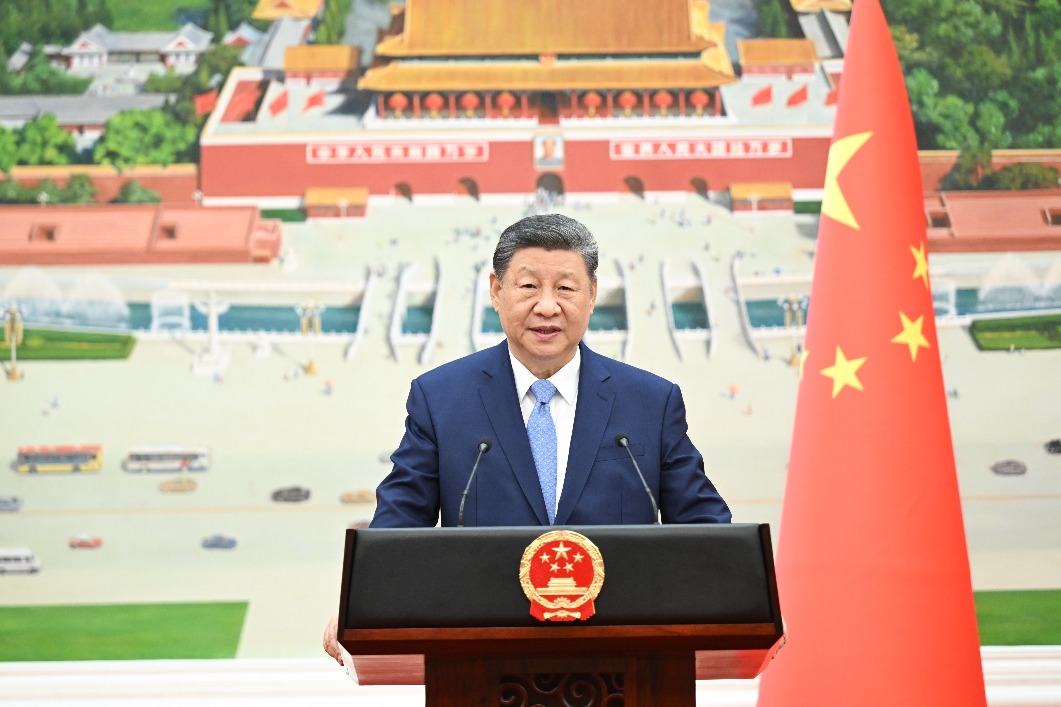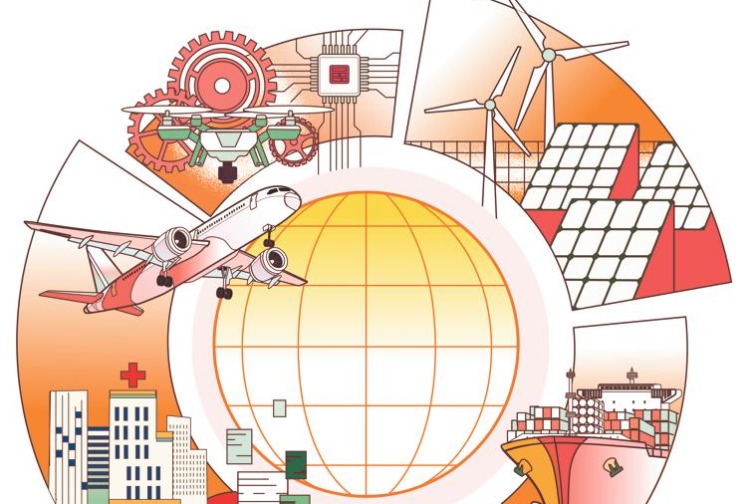Conference provides opportunity for new paradigm


The Conference on Dialogue of Asian Civilizations taking place in Beijing from May 15 to 16 is using open dialogue to establish a fresh set of universal values founded on the core heritage and culture of very ancient civilizations. The Silk Road historically was the economic order for thousands of years. It was a technology shift, as high-sea sailing vessels and the industrialization of arms caused overland trading routes to fall into disuse. The outcome was economic might shifting to coastal regions. A system of colonization emerged, followed by a post-colonial era that sought to maintain the status quo. Today, another technology shift — high-speed rails, smart road systems, telecommunications and 5G wireless — are changing the economic paradigm and reviving overland trading routes. China calls it the “Belt and Road.” Another way of understanding it is a new Silk Road, or even a “Cyber Silk Road.”
This spring, the Second Belt and Road Forum reconvened in Beijing from April 25 to 28. However, talking economics and business is not enough. The West has criticized China and many other Asian countries for not sharing their so-called universal values. But who is to say the values of some colonizers of Asia, Africa and South America represent the aspirations and sentiments of most of humanity? It’s high time Asians united around a value paradigm of their own, one that represents a continuous, unbroken heritage lasting much longer than most Western countries have existed.
Asian cultural values have philosophical foundations as old as time itself. Hindu, Buddhist, Jain, Bon, Daoist, Shamanist, Zoroastrian and Confucian values respect nature, humanity and seek harmony as a sustainable framework over differences. All these philosophies recognize if we protect our ecological order, nature will naturally protect us. Primarily due to a colonial mentality, there is some idea that universal values belong to the West — that a few nations are in a privileged position to determine universal values. In the 21st Century this leaves us to ask: What actually are these values?
Moreover, who has the right to determine which values are applied to everyone else? The values of the West are based on duality. If one side is white, the other must be black; if one side is right, then the other must be wrong; if one is good, the other must be bad; if one side wins, then the other must lose. It is a zero-sum mentality. This thinking applies to politics, economics, the workplace and virtually all aspects of life in Western society.
The values of Asia are based on non-duality. Whether Yin-Yang in Chinese, Yab-Yum in Tibetan, Shiva-Shakti in Hindi — the concepts are the same. There is no duality, but rather a unity that evolves into derivatives of multiplicity that are interconnected, multi-dimensional, interactive and synergistic.
From 2005 onwards, a network of Asian social entrepreneurs, economists and diplomats began articulating a concept called the Himalayan Consensus. Countries of the southern Silk Road, including China, India, Pakistan, Nepal, Bhutan, Bangladesh, Myanmar, Vietnam and Laos, all share a common interest in the water resources derived from Himalayan mountain glaciers. We can give our children money, but we cannot guarantee them water to drink. This view led to the emergence of Himalayan Consensus economic paradigm, which recognizes environmental protection not as a barrier to business but as an opportunity for business technology — the new megatrend of clean energy investments for environmental sustainability. This concept included community finance, heritage protection and cultural sustainable development. This in turn gave rise to an African Consensus movement. Today we are talking about a Silk Road Consensus, which brings everything together.
This comes down to a core difference in values. In Western thinking, man can overtake nature. In Asian thinking man is only a small part of nature, a conduit between heaven and Earth, not a force to try and alter the environment. We can see Asian values reflected in China’s policy of an “ecological civilization”. When I started working on this policy in 2013 as senior advisor to China’s Ministry of Environmental Protection, the nation depended on coal for 80 percent of its energy needs. With this new policy, now adopted by the central government, economic planning is targeting 80 percent green energy powering China by 2050. This will involve complex coordination between fiscal, financial infrastructure, technology, regulatory and educational policies. In turn, a holistic approach must be used to achieve the goals of this policy. The bottom line is China will lead on renewable energy solutions at a time when the White House is promoting fossil fuels and even the exploitation of resources in America’s own national parks. We have to ask ourselves what this says about universal values as they are applied today.
Asian culture emphasizes harmony and seeks quiet solutions to differences through an interactive, consultative process rather than fighting in public and trying to shame the other side into capitulation. That’s why in Asian politics the focus is not criticizing leaders, but on rectifying policies.
Asian values have created a politics of consensus rather than a zero-sum game of two teams fighting for power. Asian politics, whether in a one-party or a parliamentary system, is all about consensus, about working over longer periods of time through meetings, forums and dialogue to achieve a vision everyone can pursue while setting aside differences.
There is a sense of coexistence and tolerance that is core to Asian culture. There is no judgment of right or wrong, but rather acceptance of that which is. This applies to economics as well as politics. The success of Asian economic models, from China to Vietnam to Malaysia and so on, is there is no ideology applied to economics. It is not about capitalism versus socialism, but rather simply adapting tools of market and planning in a non-judgmental way and using what is practical to get the job done. It is not about how many political parties you have, seeking monetary support from lobbyists in a zero-sum game for power of one faction over another in the interest of political profiteering. It’s about finding consensus that can fulfill the aspirations of all.
The author is founding director of Himalayan Consensus and an international research fellow at the Center for China and Globalization.
The opinions expressed here are those of the writer and do not necessarily represent the views of China Daily and China Daily website.































